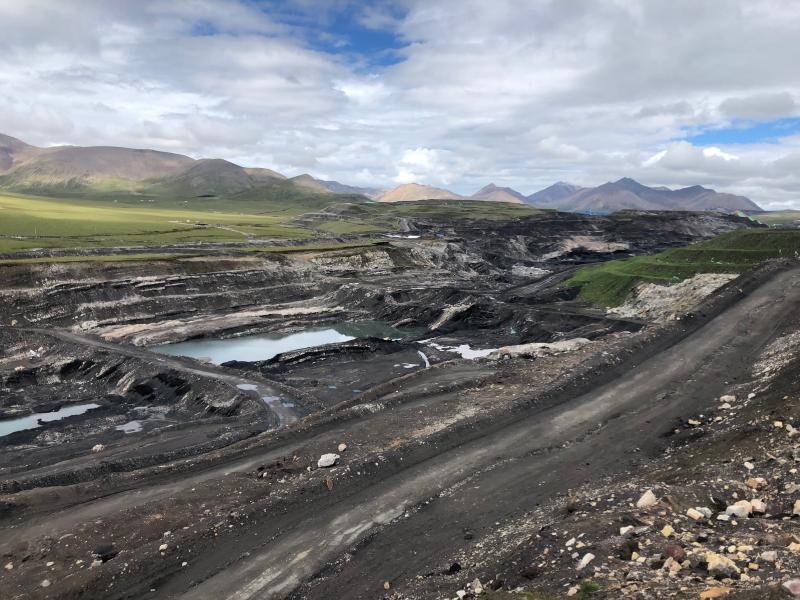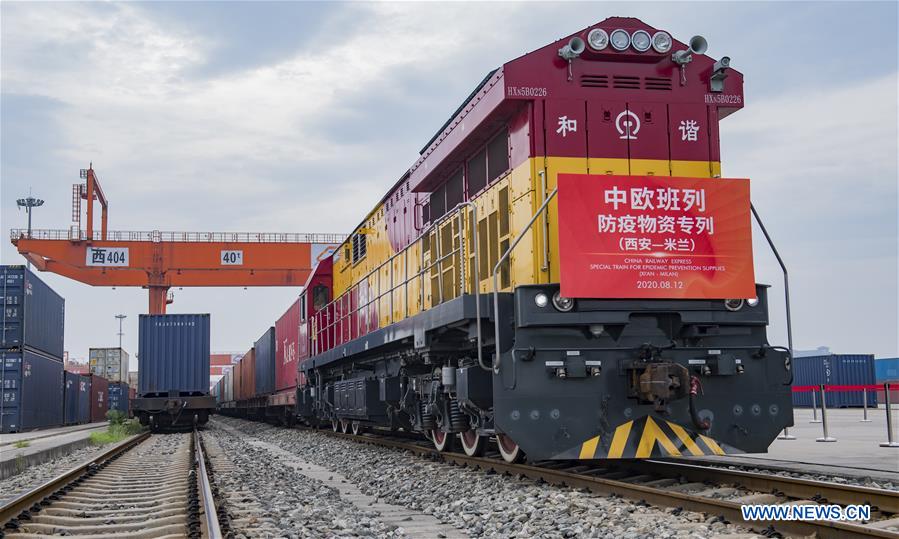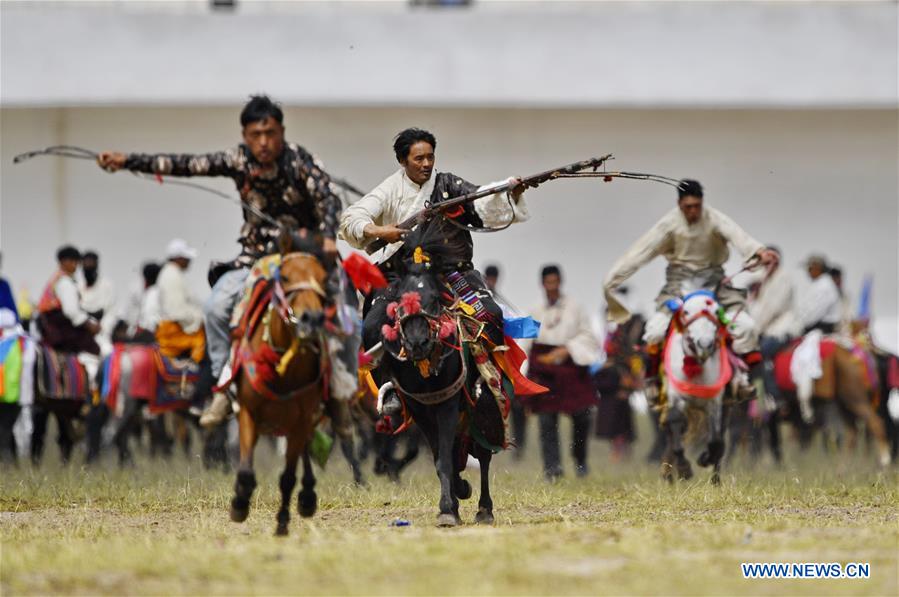-- For 14 years, a private company headquartered in Qinghai has been suspected of illegally mining more than 26 million tonnes of coal near a national nature reserve in northwest China, raking in more than 10 billion yuan, an investigation by Xinhua News Agency has found.
-- An expert said the reckless mining not only damaged the surrounding area but also caused grassland degradation and desertification, which will lead to the deterioration of the ecological environment in the upper reaches of the Yellow River and Qinghai Lake region.
-- The Xinhua investigation prompted authorities in Qinghai to launch an investigation into the incident. Two officials have been removed from office for dereliction and the chairman of the company has been put under criminal coercive measures by the police.
XINING, Aug. 12 -- Years of exploitative illegal mining near a national nature reserve in northwest China has taken a toll on the alpine grassland and wetland, posing a threat to the environment of a key water conservation area, an investigation by Xinhua News Agency has found.
For 14 years, the Qinghai Xingqing Industry & Trade Engineering Group Corporation, a private enterprise headquartered in Qinghai, has been suspected of illegally mining more than 26 million tonnes of coal in the Juhugeng coal mine in the Muli mining area, raking in more than 10 billion yuan (about 1.43 billion U.S. dollars), according to the investigation.
The reckless mining continued for years despite two rounds of inspections by central authorities targeting environmental violations in the Qilian Mountains, and the banning of all mining activities in Muli by authorities in Qinghai Province, the investigation showed.
The investigation was conducted over a span of more than two years by Economic Information Daily, a newspaper affiliated with Xinhua. A Chinese-language report was published last week, prompting authorities in Qinghai to launch an investigation into the incident.
At a press conference on Sunday, Li Jiexiang, executive deputy governor of Qinghai, said preliminary investigations found that Xingqing is suspected of violating laws and regulations.
Two officials in Haixi Mongolian and Tibetan Autonomous Prefecture of Qinghai have been removed from office for dereliction. Ma Shaowei, chairman of Xingqing, has been put under criminal coercive measures by the police, according to the press conference.

Photo taken on Aug. 6, 2020 shows the mining site where the Qinghai Xingqing Industry & Trade Engineering Group Corporation has been suspected of illegally mining, in Muli mining area in Tianjun County, northwest China's Qinghai Province. (Xinhua/Li Zhanyi)
RAMPANT ILLEGAL MINING
Rich in charred coal, the Juhugeng coal mine is located at an altitude of 4,200 meters in Tianjun County in Qinghai, near the Qilian Mountains national nature reserve, which sits on the border of the provinces of Gansu and Qinghai. Among the seven mining fields of Juhugeng, the No. 1 field is the largest in size and reserves.
During an investigative trip to the mine in late July this year, a Xinhua reporter saw several excavators and loaders working at the site while trucks loaded with coal and muck crawled along roads in the mining area one after another.
Currently, Xingqing had four mining teams, 120 types of machinery and nearly 300 people working in the No. 5 well of the No.1 field in Juhugeng, an informant who declined to be named told Xinhua.
The open-pit mining site stretched for 5 km, forming a ravine about one km wide and 300 to 500 meters deep. The excavated underground frozen soil, rock and coal gangue was piled up 40 to 50 meters high near the mine, burying large areas of grassland.
Similar mining activities were seen during the reporter's previous trip to the mine on April 26, 2019. On another trip on July 8, 2019, the reporter found, in a little more than two hours, 75 trucks each loaded with at least 50 tonnes of coal left the mining area operated by Xingqing for a train station kilometers away.
BILLIONS IN REVENUE
Xingqing has been mining illegally in the Juhugeng coal mine for 14 years, after the company engaged in the operation of Juhugeng in 2005 and began mining a year later, according to the investigation.
Despite several rounds of corporate restructuring with other energy companies in Qinghai since 2005, Xingqing and its wholly-owned subsidiary Qinghai Xingqing Tianjun energy group Co., Ltd. have been the sole operators of the above-mentioned No. 5 well of the No.1 field in Juhugeng.
Neither Xingqing nor its subsidiary had ever obtained mining licenses for the No. 1 field, which makes their mining activities illegal, according to an official of Qinghai's provincial natural resources bureau.
In an earlier interview, Ma told Xinhua that the company was still in the process of corporate restructuring, insisting that Xingqing and its subsidiary "had ceased production to deal with the restructuring" and "had not been operational."
However, data from the provincial government shows that Xingqing paid a total of 333 million and 412 million yuan in taxes in 2011 and 2012, respectively. Based on the tax records, analysts estimated that the company had illegally mined over 20 million tonnes of high-quality charred coal from the No. 1 field of Juhugeng between the end of 2006 and June of 2014, making at least 11 billion yuan.
Xingqing's internal documents show that it mined a total of 20.5 million tonnes of coal from the No. 1 field, raking in total revenue of 11 billion yuan, corroborating the estimation.
Analysts also estimated that from 2015 to 2020, the company mined a total of over 5 million tonnes of coal and made about 4 billion yuan, bringing the 14-year total to 25 million tonnes of coal and 15 billion yuan.













